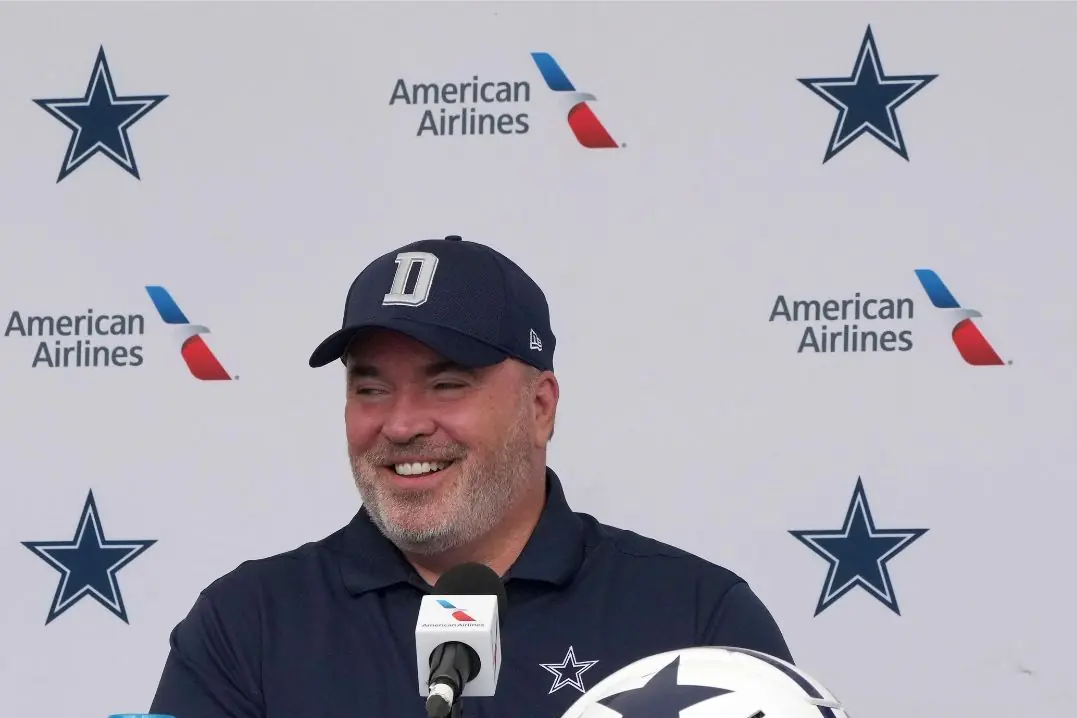There is a way to do business in football, and there is the way the Jones family does it. If that reads like a binary, understand that it isn’t in many, if not most, of the ways that matter to the NFL’s success. This is a television show and a profit-making enterprise well before it becomes a competition, and nobody understands that better than Jerry Jones. He understands it so well, in fact, that everything else is tangential. Wins, losses, transactions, deadlines, norms: none of those matter if they threaten the dollars.
This is why a team based in the country’s fifth-largest media market, competing in a sport every other developed nation in the world barely plays, having spent the past 29 years in various states of futility, has become the most lucrative sports franchise on Earth. It is also why Jerry will probably be in the ground before his football team wins another Super Bowl.
All of that is bigger than the team’s decision to part ways with Mike McCarthy’s this morning. None of it contradicts the idea that McCarthy deserved to go for his inability to steer Dallas out of its ongoing, three-decade-long skid. But the way the Cowboys handled this belated ouster and the way virtually every other team would have are quite different.
I went through the broad strokes last week on FrontBurner, and the upshot remained mostly the same through this morning. While McCarthy’s contract with Dallas expired last Wednesday, Dallas maintained an exclusive negotiating window with him through tomorrow. That afforded the team the right to veto other organizations from interviewing the 61-year-old for their own openings, which is the sort of power play that can be done but rarely is.
The NFL is a fast-moving world outside of Dallas, and so choosing a head coach tends to be less a search than an arms race, in which a handful of interested parties try to outmaneuver one another to secure the handful of exceptional candidates. Participation is optional, but the cost of sitting out is picking through the scraps—like, say, a guy dining out on a Super Bowl he won 14 years ago largely due to one of the greatest quarterbacks in history.
That should be incentive enough for the Cowboys to play along, except, if you read Rivers McCown last week, you know this team hasn’t conducted a serious head coaching search since 2007. Part of this could be good ol’ fashioned incompetence. But a much larger one is undoubtedly rooted in the same logic that led Jones to dilly dally with extending CeeDee Lamb and Dak Prescott last summer and will lead him to do the same with Micah Parsons despite Parsons all but begging for a deal to be done as painlessly as possible.
There is money to be made by being the last man standing in the attention economy, by being the outlier—the talking point—who cuts against established norms. Discussing why the Cowboys are dumb for not doing the sensible thing is still discussing them, which means paying attention, which is currency in an information ecosystem that births and kills stories at warp speed. Far more often than not, the properties adept at navigating that environment know how to print real currency, too. The Cowboys are no exception.
This is how you wind up in the situation Dallas encountered last week: noncommittal about an employee for whom they had learned every possible data point, yet perfectly content to drag things out at the expense of letting that employee interview for another job. (In McCarthy’s case, with the Chicago Bears.) The rest of the NFL does not operate this way, either in timeline—Dallas will almost certainly be the last non-playoff team to part ways with its coach this offseason—or in restricting an out-of-contract coach from talking with other potential employers before jobs are filled or search processes narrow. It only figures, then, that the rest of the NFL was wrong after chatter percolated over the weekend about McCarthy coming back.
The charitable interpretation is this was a leverage play. The NFL Network’s Tom Pelissaro reports that length of contract was the sticking point in the negotiations, and it’s not hard to concoct a scenario in which Jones sought to choke out McCarthy’s other job prospects in order to bully him into taking a shorter, team-friendly deal.
A less-charitable one, considering Dallas’ breadth of data on McCarthy’s performance and this season effectively being over since October, is this being the latest clumsy attempt at a football telenovela, with the plot twist—surprise, Mike is gone after all!— timed to drop the morning after two of Dallas’ NFC East rivals each won playoff games.
Either one is a total this fucking guy move from an owner who is the most this fucking guy in the NFL: the latest football embarrassment by a general manager who cannot be fired. But now the media cauldron will hiss and bubble about who comes next to save the unsaveable Cowboys, to rescue Jerry Jones from himself. It will miss the point, as it always has, because it operates on a different paradigm than Jerry Jones, one that assumes the public end goal—seeing their favorite football team win a Super Bowl—matters anywhere near as much as a billionaire’s plaything remaining the shiniest one on the playground.
Jones needs no rescuing from doing exactly what he’s always wanted, which is why the next Dallas Cowboys head coach probably won’t get them much further than Mike McCarthy just did. It’s fine to regard that as a failure. But it won’t be in the game their owner cares about most.

Mike Piellucci is D Magazine‘s sports editor. He is a former staffer at The Athletic and VICE, and his freelance…



